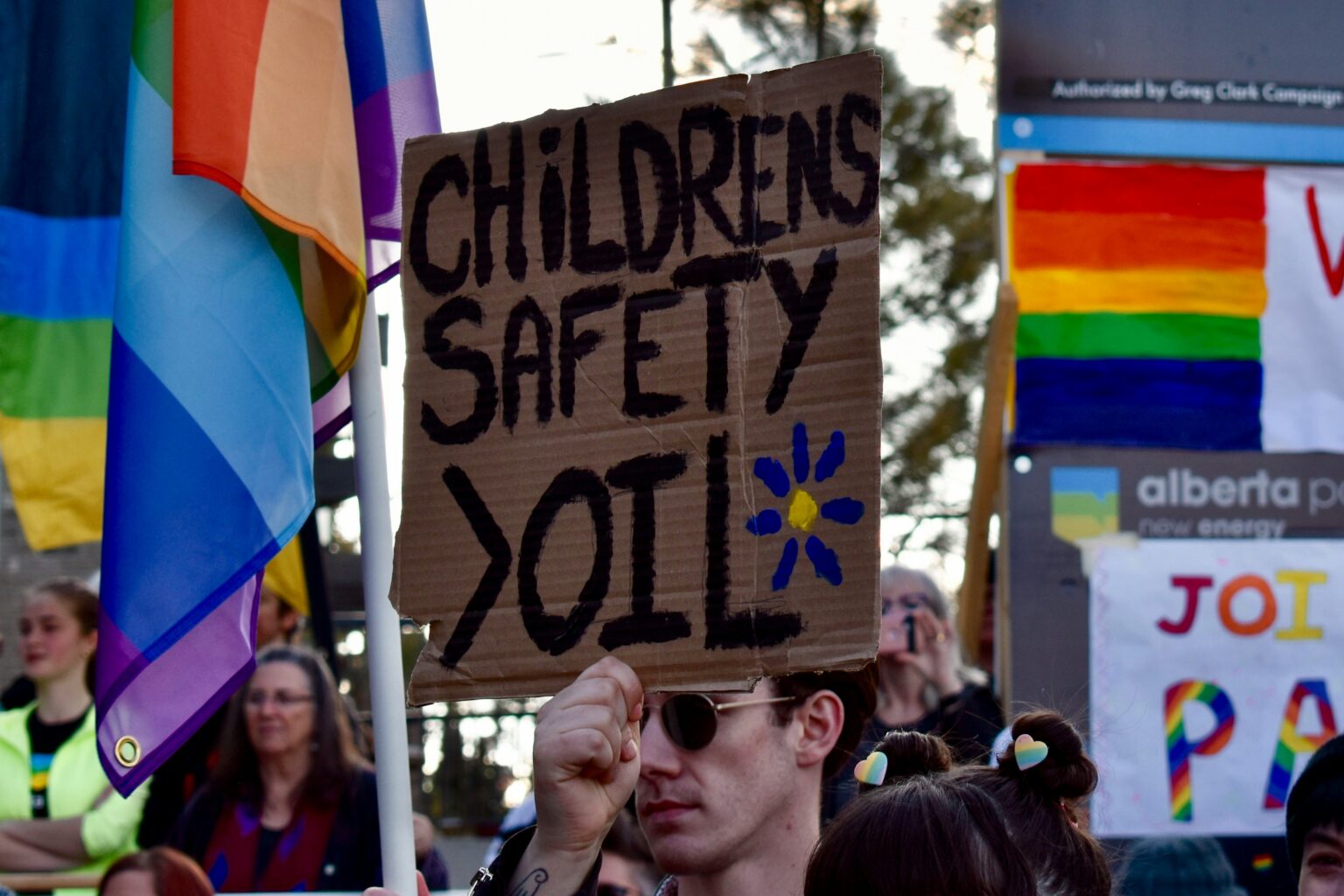“I miss recess,” said Asher, a Grade 5 student when asked for comment by CityNews on the Alberta’s teachers strike, adding that he even missed math class. “It’s fun. I get to learn more skills.”
Adults are supposed to ensure students like Asher have an opportunity to learn, that teachers are properly paid and that kids have a stable well-funded education system to realize their potential. Instead, the United Conservative Party under Alberta Premier Danielle Smith just passed back-to-work legislation and invoked the nuclear option of the notwithstanding clause, ensuring this labour dispute will metastasize well beyond Alberta’s educators.
How did we get in this mess?
Some kids like math, but the math on Alberta’s oil-dependent finances is definitely not fun. Smith’s single-minded fixation on the oil and gas industry has left the province dangerously dependent on highly cyclical oil revenue. A yawning chasm between UCP oil enthusiasm and what is happening in the real world may soon devastate Alberta’s ability to provide basic services like education and health.
Despite Smith’s constant cheerleading for additional bitumen extraction, an eye-popping global oil glut of up to 4 million barrels per day in excess supply is projected for the coming year. Some of this is part of normal price volatility, but a growing portion of the global surplus is due to the structural decline in oil demand due to rapid electrification in China and the developing world.
A fiscal plan tabled by Alberta in February details the disconnect between Smith’s pro-oil hype and the ton-of-bricks reality soon to be crashing through her optimistic assumptions. Smith’s government projected the average price of West Texas Intermediate (WTI) crude for the current fiscal year to be $68 per barrel, rising to $71 for the budget tabled next spring and $71.50 for 2027. Last week WTI was below $57 and recent projections from the U.S. government expect crude to plunge to an average $48.50 in 2026. Similar grim projections show little improvement for 2027.
Every dollar drop in the price of WTI crude puts a $750 million hole in the provincial budget. A rough calculation shows that Alberta may face a staggering budget shortfall of over $16 billion in 2026 and another $16 billion in 2027 based on current price projections. This is on top of a $6.5 billion updated deficit for the current year.
Declining Student Funding
Smith never seems to miss an opportunity to lobby, leverage or issue decrees for additional oil production. Her mandate letter just issued to Energy Minister Brian Jean directed him to increase Alberta crude production by 50 percent in 2030 and double it by 2035. The underlying conceit is that increased oil production somehow results in increased prosperity. If that’s true, why has per-student spending plunged in the last decade while bitumen production has almost doubled?
A recent report from the right-leaning Fraser Institute documented how Alberta education spending per student is the lowest in the country. But isn’t that because Alberta has a growing population and needs to build more schools? Nope. The Fraser report also looked at per student spending minus capital costs. Alberta is still last; 28 percent below what New Brunswick spends per kid on education.
But what about long-term policy choices? The Fraser report helpfully looked at the scenario where “the inflation-adjusted, per-student spending levels [had] been maintained from the 2012/13 base year.” Almost all provinces chose to substantially increase spending per student in the last decade, with a 10 percent average increase nationally. Alberta was again dead last, showing a decline by over 15 percent since 2013.
Is that what prosperity looks like? Alberta bitumen production increased over 90 percent since 2013 while automation eliminated over 25,000 oil and gas sector jobs between 2014 and 2021. Those job losses are projected to accelerate, wiping out about 30 percent of the remaining oil patch workforce by 2040. And if oil prices plunge to levels seen during the COVID-19 pandemic, expect companies to curtail production as they did during the pandemic, no matter how many pipelines Smith would like to imagine.
Norwegian Nest Egg
Norway produces one third less oil with roughly the same population as Alberta. Strange that those woolly-headed socialists somehow managed to spend 44 percent more per student on education in 2019 while socking away almost CAD$3 trillion in their sovereign wealth fund and counting. For a depressing contrast, compare this with the Alberta debt clock proceeding the opposite direction almost as fast.
The average increase in this massive Norwegian nest egg since 2015 is about $170 billion per year, meaning Norway could pay for the entire Alberta education budget with about three weeks of investment income.
The ugly fight unfolding with Alberta teachers was entirely avoidable had Alberta not so spectacularly mismanaged the province’s vast resource wealth. Despite decades of boom-bust bombast, Smith and the UCP seem to be as willfully blind to the global energy transition as ever.
Why can’t the richest province in one of the world’s richest countries afford to pay teachers a living wage? Maybe Asher’s Grade 5 class can help the premier with the math.
Subscribe to our newsletter
Stay up to date with DeSmog news and alerts






